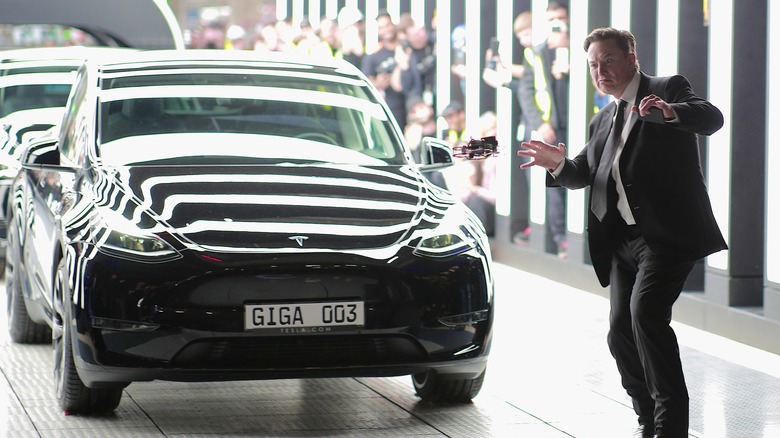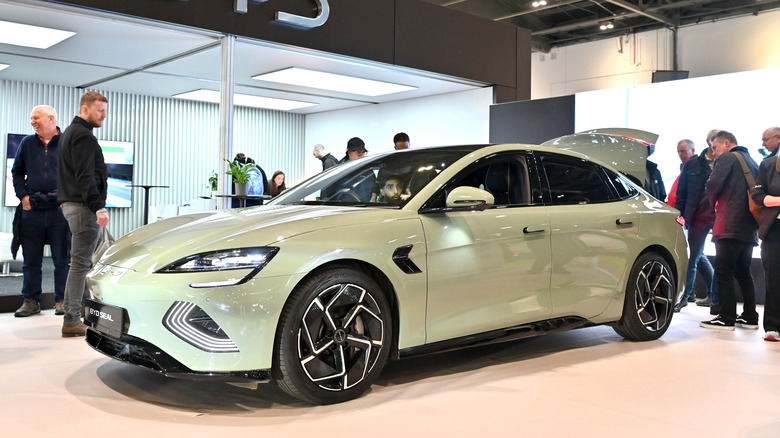Tesla's Low-Cost Model 2 EV Is Reportedly Dead
Tesla has reportedly scrapped plans for a low-cost smaller vehicle. The proposed "Model 2" was to be the smaller, cheaper, Tesla that CEO Elon Musk has promised for years. However, stiff competition from Chinese manufacturers seems to have made the long-promised project unviable.
Reuters has reportedly viewed internal messages from Tesla that read: "Suppliers should halt all further activities related to H422/NV91." H422 and NV91 are both codes assigned to the company's "affordable car project."
Musk's original aim was to establish Tesla with a string of luxury models, before producing a small, affordable, family EV. It was to be priced at around $25,000, with lower production costs making it viable. One of the ways Musk suggested costs could be cut involved not including parts from Tesla's more expensive models. The Model 2 may have missed out on up to 370 parts you'd find in the company's more premium cars in a bid to cut costs by just under 70%.
Production of the Model 2 was due to start at the company's Texas Gigafactory in early 2025. It's not a total waste, as the company will instead use the Model 2's platform to build self-driving robotaxis. Tesla shares also dropped following the news.
Why is China a problem for Elon Musk?
If you're offering a cheaper option, it may be a hard sell if someone is drastically undercutting you. This is what the Chinese EV industry is essentially doing with many other manufacturers. BYD — a company that briefly overtook Tesla as the world's most popular EV manufacturer in 2022 and may do so again this year — is producing vehicles with an MSRP as low as $10,000. That's not something a manufacturer based in the West can compete with.
Cost isn't the only area where Chinese EVs are pulling ahead, and the concept of an electric future seems to be gaining a far firmer footing over the Pacific than it is on American soil. Obviously, Chinese EV manufacturers may struggle to carve out a large share of the market in the U.S. for a couple of reasons. Current EV rebates place a large focus on the cars and their components being assembled within North America. Political tensions between the U.S. and Chinese governments can also throw a spanner in the works — as they have with things like tablets and smartphones. But the U.S. accounts for less than 8% of the global EV market, and Tesla needs a firm hold of that other 92% if it wants to stay on top.

